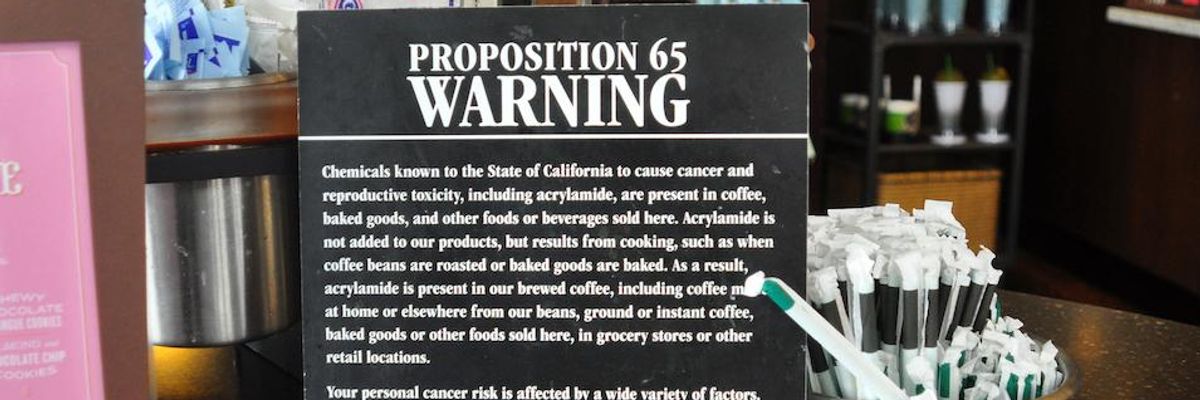A public health watchdog on Wednesday praised California's proposal to add one of the so-called "forever chemicals" PFOA to the state's list of chemicals known to cause cancer.
PFOA, or perfluorooctanoic acid, was formerly used to make DuPont's Teflon and other products. It's part of a group of chemicals called per- and polyfluoroalkyl substances (PFAS). Dubbed forever chemicals because they don't break down and can accumulate in the human body, PFAS contamination is widespread. Humans can be exposed through workplace environments, groundwater contamination, or household products.
The U.S. EPA says there's evidence PFOA can cause adverse health effects including reproductive and developmental, liver and kidney, and immunological harm.
The proposed listing decision was announced last Friday by the California Environmental Protection Agency's Office of Environmental Health Hazard Assessment (OEHHA). It said products with PFOA should carry a warning label that the chemical is known to the state to cause cancer under the Safe Drinking Water and Toxic Enforcement Act of 1986, or Proposition 65. That determination, said OEHHA, is based on findings from the National Toxicology Program.
PFOA has been phased out of production in the U.S., but public health watchdogs says there remain concerns about ongoing contamination, existing stockpiles, imported products, and the fact that some replacement chemicals present health dangers of their own.
PFOA is already on the Proposition 65 list, but for reproductive toxicity.
The public comment period on the new proposed listing ends May 3.
Adding the cancer warning to PFOA would be good news for public health, says the Environmental Working Group (EWG), because such labeling "historically has pushed manufacturers to remove listed chemicals from their products."
EWG president Ken Cook, in a statement Wednesday, welcomed the California regulator's move as a "landmark decision" that "underscores the state's longstanding commitment to protecting its citizens from cancer-causing chemicals like PFOA."
"The damage to communities nationwide from PFOA-contaminated drinking water and exposure through everyday consumer products is almost unimaginable," said Cook, "but California's action underscores the urgency of addressing the crisis."
The proposal also drew praise from environmental attorney and Right Livelihood laureate Robert Bilott, who, following a two-decade legal battle, helped reach a $671 million settlement in class-action lawsuit against DuPont on behalf of thousands of people who said their drinking water was contaminated by the corporation.
Bilott said in a statement that the "more information and scientific data that is uncovered and revealed, the more concerned scientists and regulators all over the planet become."
"The current action in California is just the latest within the scientific and regulatory community to reject the manufacturers' claims that these forever chemicals present 'no risk' to humans," said Bilott.
Public health experts and legal observers say PFAS-making companies knew of the chemicals' harm for decades but continued their production, leaving some affected residents to feel they "collateral damage" while companies try to dodge accountability.
PFOA has been phased out of production in the U.S., but public health watchdogs say there remain concerns about ongoing contamination, existing stockpiles, imported products, and the fact that some replacement chemicals present health dangers of their own.

